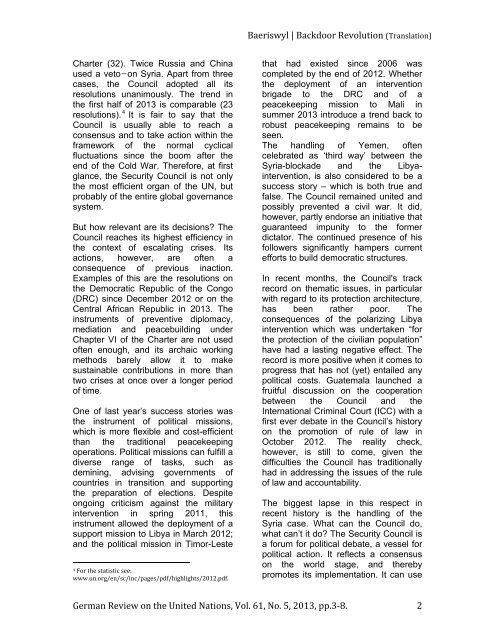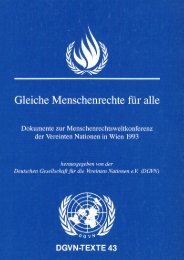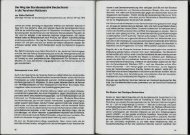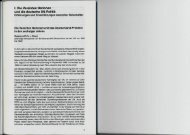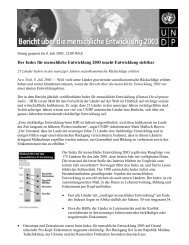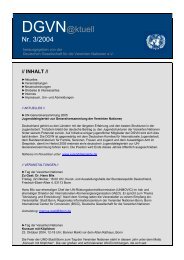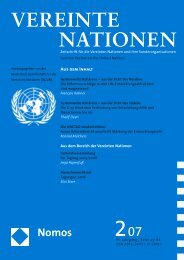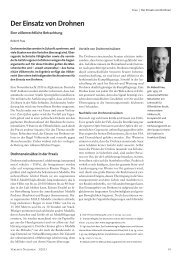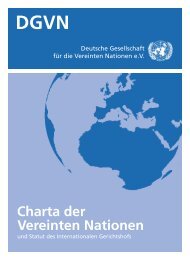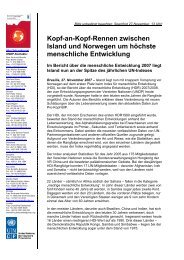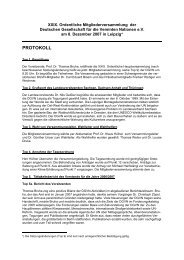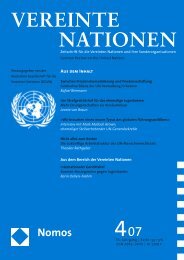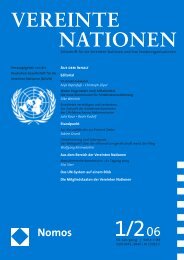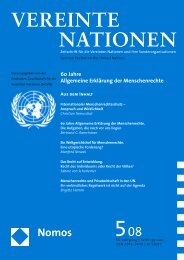Backdoor Revolution. Modern Working Methods for a more efficient ...
Backdoor Revolution. Modern Working Methods for a more efficient ...
Backdoor Revolution. Modern Working Methods for a more efficient ...
Create successful ePaper yourself
Turn your PDF publications into a flip-book with our unique Google optimized e-Paper software.
Baeriswyl | <strong>Backdoor</strong> <strong>Revolution</strong> (Translation) <br />
Charter (32). Twice Russia and China<br />
used a veto ̶ on Syria. Apart from three<br />
cases, the Council adopted all its<br />
resolutions unanimously. The trend in<br />
the first half of 2013 is comparable (23<br />
resolutions). 4 It is fair to say that the<br />
Council is usually able to reach a<br />
consensus and to take action within the<br />
framework of the normal cyclical<br />
fluctuations since the boom after the<br />
end of the Cold War. There<strong>for</strong>e, at first<br />
glance, the Security Council is not only<br />
the most <strong>efficient</strong> organ of the UN, but<br />
probably of the entire global governance<br />
system.<br />
But how relevant are its decisions? The<br />
Council reaches its highest efficiency in<br />
the context of escalating crises. Its<br />
actions, however, are often a<br />
consequence of previous inaction.<br />
Examples of this are the resolutions on<br />
the Democratic Republic of the Congo<br />
(DRC) since December 2012 or on the<br />
Central African Republic in 2013. The<br />
instruments of preventive diplomacy,<br />
mediation and peacebuilding under<br />
Chapter VI of the Charter are not used<br />
often enough, and its archaic working<br />
methods barely allow it to make<br />
sustainable contributions in <strong>more</strong> than<br />
two crises at once over a longer period<br />
of time.<br />
One of last year’s success stories was<br />
the instrument of political missions,<br />
which is <strong>more</strong> flexible and cost-<strong>efficient</strong><br />
than the traditional peacekeeping<br />
operations. Political missions can fulfill a<br />
diverse range of tasks, such as<br />
demining, advising governments of<br />
countries in transition and supporting<br />
the preparation of elections. Despite<br />
ongoing criticism against the military<br />
intervention in spring 2011, this<br />
instrument allowed the deployment of a<br />
support mission to Libya in March 2012;<br />
and the political mission in Timor-Leste<br />
4 For the statistic see: <br />
www.un.org/en/sc/inc/pages/pdf/highlights/2012.pdf. <br />
that had existed since 2006 was<br />
completed by the end of 2012. Whether<br />
the deployment of an intervention<br />
brigade to the DRC and of a<br />
peacekeeping mission to Mali in<br />
summer 2013 introduce a trend back to<br />
robust peacekeeping remains to be<br />
seen.<br />
The handling of Yemen, often<br />
celebrated as ‘third way’ between the<br />
Syria-blockade and the Libyaintervention,<br />
is also considered to be a<br />
success story – which is both true and<br />
false. The Council remained united and<br />
possibly prevented a civil war. It did,<br />
however, partly endorse an initiative that<br />
guaranteed impunity to the <strong>for</strong>mer<br />
dictator. The continued presence of his<br />
followers significantly hampers current<br />
ef<strong>for</strong>ts to build democratic structures.<br />
In recent months, the Council's track<br />
record on thematic issues, in particular<br />
with regard to its protection architecture,<br />
has been rather poor. The<br />
consequences of the polarizing Libya<br />
intervention which was undertaken “<strong>for</strong><br />
the protection of the civilian population”<br />
have had a lasting negative effect. The<br />
record is <strong>more</strong> positive when it comes to<br />
progress that has not (yet) entailed any<br />
political costs. Guatemala launched a<br />
fruitful discussion on the cooperation<br />
between the Council and the<br />
International Criminal Court (ICC) with a<br />
first ever debate in the Council’s history<br />
on the promotion of rule of law in<br />
October 2012. The reality check,<br />
however, is still to come, given the<br />
difficulties the Council has traditionally<br />
had in addressing the issues of the rule<br />
of law and accountability.<br />
The biggest lapse in this respect in<br />
recent history is the handling of the<br />
Syria case. What can the Council do,<br />
what can’t it do? The Security Council is<br />
a <strong>for</strong>um <strong>for</strong> political debate, a vessel <strong>for</strong><br />
political action. It reflects a consensus<br />
on the world stage, and thereby<br />
promotes its implementation. It can use<br />
German Review on the United Nations, Vol. 61, No. 5, 2013, pp.3-‐8. <br />
2


